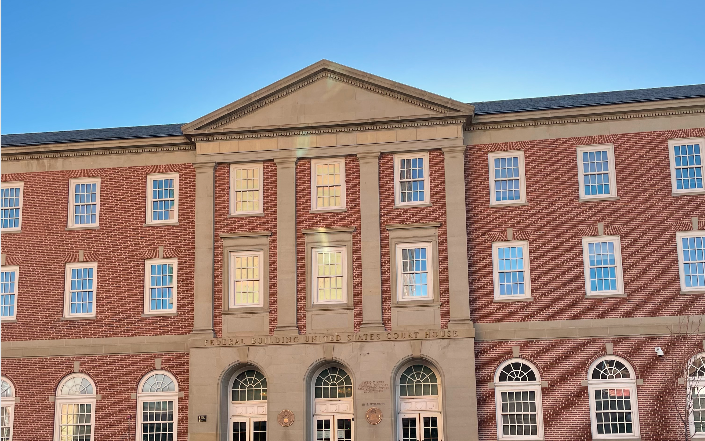This week, the U.S. District Court in Casper will hear a case brought by the ACLU of Wyoming that challenges Wyoming’s 24/7 Sobriety Program and its application in Teton County.
The hearing for Marx v. Hill et al will take place at 8:30 a.m., April 8, at the Ewing T. Kerr Federal Building at 111 S. Wolcott St., Caspar.
While courtroom drama in real life isn’t quite as exciting as what’s on TV or in the movies, there is a lot at stake, and we wanted to answer some frequently asked questions.
Who is involved in this case?
The ACLU of Wyoming is representing three individuals, all collectively known as the plaintiffs.
- Alfredo Guillermo Sanchez, a previous 24/7 Program participant
- David Christopher “Chris” Ball, a previous 24/7 Program participant
- Sean Marx, a current 24/7 Program participant
All other pretrial participants of the program are also included in the lawsuit.
The defendants are:
- Bridget Hill, in her official capacity as Wyoming attorney general
- Mark Gordon, in his official capacity as Wyoming governor
- Matt Carr, in his individual and official capacity as sheriff of Teton County
- Sarah King in her individual and official capacity as director of the Teton County 24/7 Sobriety Program
- Bill West, in his individual and official capacity as acting director of the Teton County 24/7 Sobriety Program
- Doug Raffelson, Cody Haderlie, Matt Harper, and Heidee McKenzie, in their individual and official capacities as Teton County Sheriff’s Department and Board of County Commissioners of the County of Teton
The judge who will preside over the hearing is Chief Judge Scott W. Skavdahl.
What is a hearing?
The hearing is our opportunity to stand up in front of the judge and argue the plaintiffs’ case. Up until now, both sides have been submitting written briefs to the judge. (Scroll down to the bottom of this page to read all the legal documents.)
The written briefing on a number of important issues is now complete and the judge has asked that both sides appear in his courtroom to make these arguments in person so he can ask questions and further explore the arguments each side is making.
Can I come to the hearing? What can I bring?
Hearings are open to the public and anyone can come. However, there are some rules of conduct once inside a courthouse, and even stricter rules inside a courtroom itself. Anyone attending will have to go through security, be required to turn off cell phones at certain times, and be forbidden from bringing food and drink into the courtroom. Also, no one is allowed to record the court proceedings.
What is the background of the case?
Originally created by a 2014 state law, Wyoming’s 24/7 Sobriety Program allows a judge to mandate a breathalyzer test twice a day, every day, for those awaiting trial on alcohol charges. The program was designed for repeat offenders of alcohol and drug related arrests, but in Teton County, it is also being used as a pretrial condition for first-time offenders following amendment of the law in 2019.
The case asserts that daily warrantless searches are constitutional violations when applied to people who haven’t yet been convicted of a crime. Specifically, the 24/7 program violates the Fourth, Eighth and Fourteenth Amendments of the Constitution.
The program also violates due process because it authorizes a person’s arrest without a warrant for violation of the program without giving sufficient notice of the conduct that must be conformed to under the statute. As a result, Campbell County and Fremont County sheriffs run their 24/7 programs differently from Teton County and arrest participants for being late by 1 minute or more to testing and hold participants for different lengths of time than Teton County. This is because the arrest statute is vague and gives arresting officers sole discretion in determining a violation depriving participants of their liberty without due process as required by the Fourteenth Amendment.
What will the ACLU be arguing at the hearing?
Because the 24/7 Sobriety Program goes beyond the constitutional limits that exist to protect the privacy and freedom of Wyoming citizens, the ACLU of Wyoming is asking Judge Skavdahl to block the state from enforcing the two unconstitutional program statues and the program’s administrative rules related to pretrial participants.
When will a decision be made? What happens next?
That’s up to Judge Skavdahl. It is extremely unlikely, but he could decide to rule on Friday. It is more likely that he will wait to issue a written ruling over the next few days, weeks or months. All we can do is wait and see!

